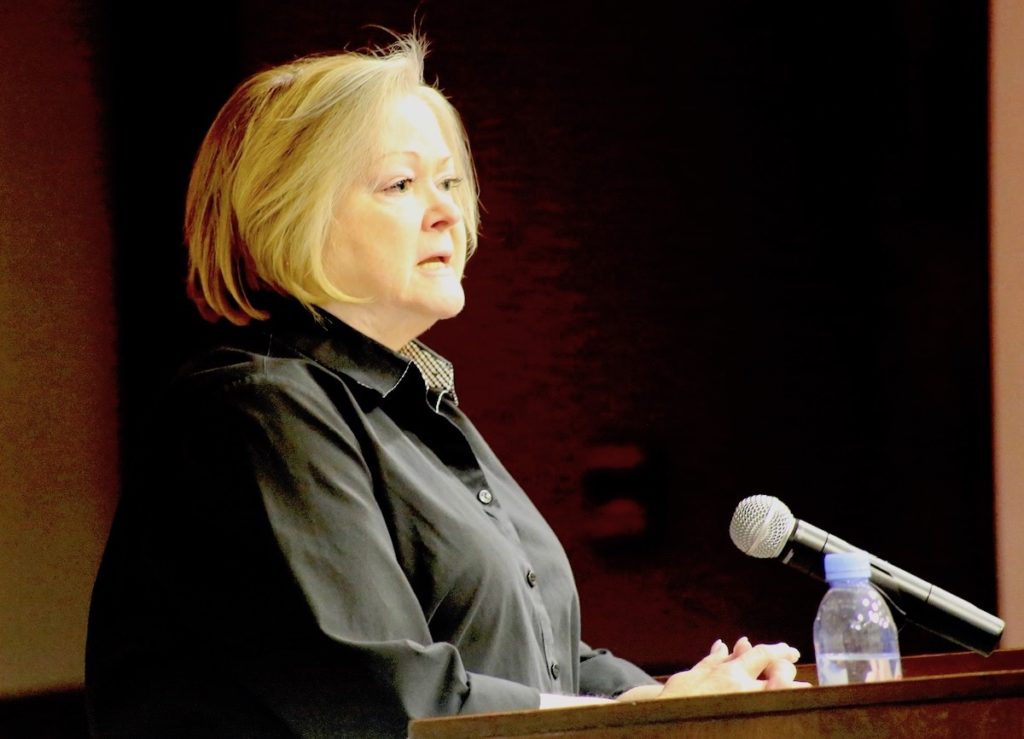Judy Shepard envisions a day when someone who is gay doesn’t have to go through the process of “coming out.”
She envisions the United States becoming a country in which all citizens understand the power of their vote and regularly exercise that power.
She envisions a generation of high school and college students changing the nation by supporting equal rights for all Americans – simply because they’re Americans.
The mother of Matthew Shepard – who at the age of 21 was brutally attacked, tied to a fence, and left to die in Laramie, Wyo. because of his sexual orientation – spoke to students at the College of Law on March 7.
Judy Shepard shared the details surrounding her son’s brutal death in 1998. That incident, she said, led her and her husband to lobby for federal hate crime legislation that would more substantively hold people accountable for committing crimes against the LGBT community.
Eleven years after her quest began, President Barack Obama signed into law the Matthew Shepard and James Byrd, Jr. Hate Crime Prevention Act.
“President Obama was our knight in shining armor,” she said. “We made great advancement in hate crime protections, and we thought that would continue to move forward with understanding leadership.”
However, with the election of President Donald Trump, that progress has halted, she said.
“I’m really, really mad about it, and I’m really scared for everyone who is not a straight, white, Christian male – no offense to straight, white, Christian males.”
Cynthia Deitle, formerly a special agent with the Federal Bureau of Investigation and now the operations director for the Matthew Shepard Foundation, said the federal hate crime statute has been effective in providing needed options for prosecuting hate-based crimes.
“We were very challenged with what we could do with these very horrific displays of hate, and our hands were very much tied and we needed this law to get over that hurdle,” she said.
Since the Hate Crime Prevention Act was put in place, between 50 and 60 successful prosecutions have taken place, she said.
Shepard said she didn’t imagine 20 years ago that she would still be working in support of civil rights and fighting for equality for LGBT citizens. She outlined an action plan rooted in civil rights advocacy through voting.
“You have to register, you have to vote, you have to understand the beliefs of the person you’re voting for, and you should even consider working on a campaign for a candidate you believe in,” she said.
She also encouraged UT Law students to be compassionate in their careers.
“You’re going to have to understand people who are not like you,” she said. “That will be your job … They will need a friend who understands what they are going through.”
Shepard visited the University of Tennessee College of Law as part of Diversity Week activities presented by the Student Council on Diversity and Inclusion and the Scripps Foundation.
